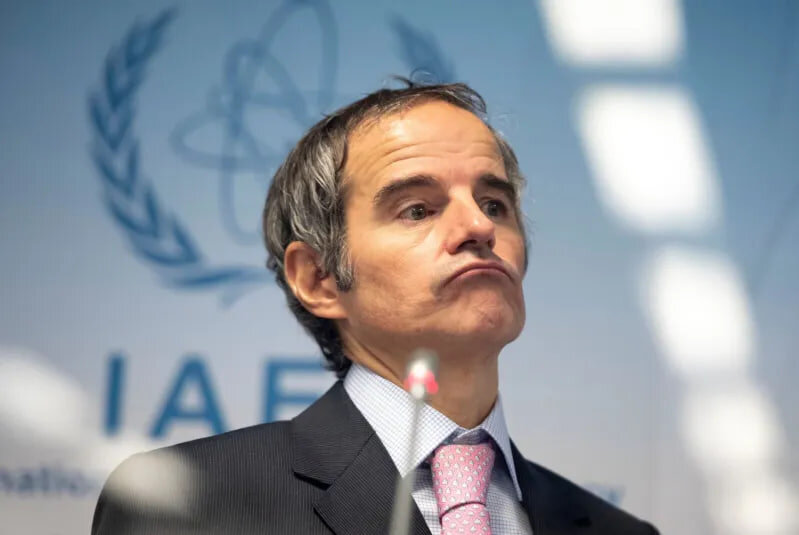Ex-diplomat says Grossi has turned IAEA into a tool for advancing Western political goals

TEHRAN - Writing a commentary published in the Iran newspaper on June 23, former Iranian diplomat strongly criticized IAEA chief Rafael Grossi for his report to the IAEA Board of Governors, saying it paved the way for the adoption of a resolution against Iran and ultimately illegal attacks by Israel and the U.S. on Iran’s nuclear facilities.
“Unfortunately, Grossi has paid no heed to this grave responsibility and has effectively transformed the agency into a tool for legitimizing hostile and unlawful actions by the Israeli regime against the Islamic Republic of Iran,” Koroush Ahmadi said.
The following is the text of his article titled “Legitimizing invasion”:
While it was expected that influential countries member to the International Atomic Energy Agency (IAEA) would utilize their diplomatic capacities to prevent escalating tensions, the IAEA director general of the agency chose a different path.
By preparing a report in which the political aspects overshadowed the technical and legal ones, Rafael Grossi effectively laid the groundwork for the adoption a resolution in the Board of Governors that served as an additional and false justification for the strikes by the Israeli regime and the United States against Iran’s nuclear facilities.
The report prepared by the IAEA under the responsibility of Grossi regarding Iran's nuclear activities was published at a time when negotiations were ongoing between Grossi and Iranian officials concerning contentious issues.
These negotiations, which have been extensively pursued in recent years, primarily revolved around alleged secret nuclear sites claimed by the West, which had been narrowed down from four to two locations, the installation and monitoring of IAEA cameras, and the operational conduct of inspectors. In all these matters, Iran demonstrated a high level of cooperation and engagement to facilitate the resolution of disputes.
In this context, while it was anticipated that influential countries would leverage their diplomatic capacities to prevent escalating tensions and avoid pushing matters toward war and conflict, Grossi chose a different path. His report, in which political aspects predominated over technical and legal issues, facilitated the adoption of the resolution in the Board of Governors that became a false justification for the Israeli regime and the United States' attacks on Iran's nuclear facilities. Although the resolution cannot be deemed the sole cause of military attacks, it undoubtedly played a key role in intensifying the political and legal atmosphere against Iran within the Board of Governors, further paving the way for hostile actions.
In this regard, the personal approaches and inclinations of the IAEA director general are of significant importance. In previous periods, directors such as Hans Blix, Mohamed ElBaradei, and Yukiya Amano faced numerous challenges but maintained a more balanced and professional approach toward Iran's cooperation with the agency.
In contrast, Grossi has exhibited clear and profound inclinations towards the West, particularly in his performance and responsibilities as director general, distancing himself from the necessary neutrality required for this position. These inclinations have influenced his actions and reports that have effectively reduced the agency's role from a technical and legal body to a tool for advancing Western political objectives.
Grossi has clearly overlooked the reality that his position and performance, along with the tone of his reports, can play a decisive role in matters as significant as peace and war, potentially paving the way for actions contrary to international law and military aggressions.
Unfortunately, Grossi has paid no heed to this grave responsibility and has effectively transformed the agency into a tool for legitimizing hostile and unlawful actions by the Israeli regime against the Islamic Republic of Iran. This reality now casts an ever-growing shadow over relations between Iran and the Agency, darkening the prospects for future cooperation.
Leave a Comment